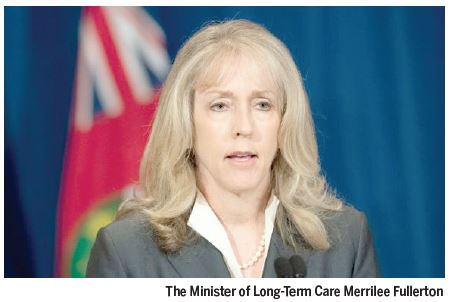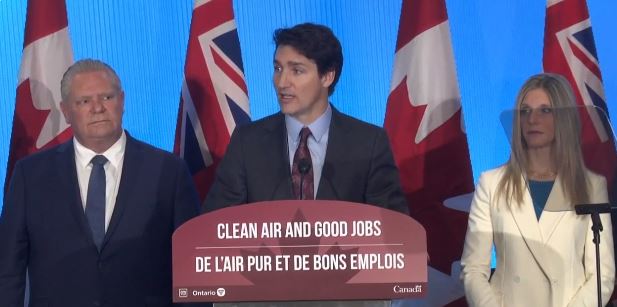Government orders during Covid-19. Who benefits?
TORONTO – The numbers are certainly disconcerting. Ontario has recorded more than 2,000 cases of Covid-19 for the sixth day in a row. The virus continues to spread within communities and within the long-term care population in particular.
Currently, Ontario reports 154 long-term care (LTC) homes which are in outbreak. On Friday, the Ministry of Long-term Care (MLTC) approved a new Voluntary Management Contract (VMC) between Cambridge Memorial Hospital and Cambridge Country Manor. The outbreak was declared on the 8th of December. As of Saturday (December 19), 54 residents and 46 staff have tested positive for Covid-19.
This latest agreement marks the 19th VMC between Ontario hospitals and LTC homes since the onset of the pandemic. Of the nineteen, eleven homes remain under a (VCM) contract – that suggests there has been minimal improvement.
Under the terms of these arrangements, Ontario hospitals provide enhanced support to facilities in need. They are designed to address the spread of Covid-19 within the home, help stabilize the situation and return the home to normal operations.
A Mandatory Management Order (MMO) is yet another mechanism that the MLTC may use to mitigate the spread of Covid-19 within facilities. To date, the MLTC has issued seven MMOs, four of which are still in effect.
Basically, in situations where LTC operators may not necessarily be complying with recommendations, the MTLC appoints either a hospital partner or private management firm to take over temporary management. The aim is to address the outbreak within the home, provide effective administrative and clinical leadership, and help protect the residents and staff from infection.
Since the start of the epidemic, the MLTC has turned to hospital partners when issuing orders or approving contracts. However, last week, the directive was different. On December 14th, the Ministry had issued the MMO requiring Revera Long Term Care Inc. to retain UniversalCare Inc. to temporarily manage Westside LTC home. To date, there have been 30 resident deaths at the Etobicoke home.
This is the first time during the pandemic when the Ministry turned to a private provider (not a hospital) to temporarily assume management of a home. The decision is puzzling because one of the homes managed by UniversalCare Inc. , Villa Colombo in Vaughan, had reported 21 resident deaths during the first wave. In the third outbreak through the home, another three deaths have been reported, so far.
Corriere asked the MTLC why they would choose this particular management firm as opposed to a hospital partner. They responded that “the private provider was the in best position to provide timely and efficient support to the home.” There was no indication of the criteria.
A frustrated and angry Official Opposition at Queen’s Park, the NDP, upped the tempo of their calls for an end to for-profit homes. Party leader, Andrea Horwath, argues that “for-profit homes are more dangerous and their residents who contract Covid-19 are more likely to die”, than in not-for-profit homes.
In an ironic coincidence, Revera is seeking government approval to transfer licenses for 24 of their LTC homes to holding companies. The homes are located throughout Ontario including Toronto, Scarborough and Etobicoke. As of Thursday’s press conference, Taras Natyshak, NDP Ethics and Accountability Critic, confirmed the MLTC has approved seven of the license transfers with the remainder in the queue.
This has led to additional finger-pointing and debate whether transferring licenses is another means by which for-profit corporations attempt to protect themselves from potential liability and litigation.
Families of residents who have died in several homes are part of multiple class action lawsuits against home operators, claiming negligence. Revera and UniversalCare Inc. are named in two separate cases.




